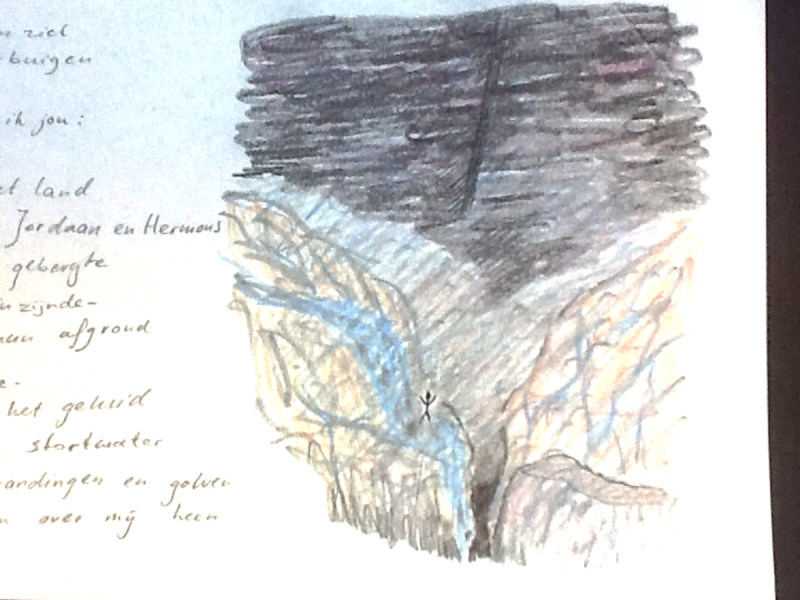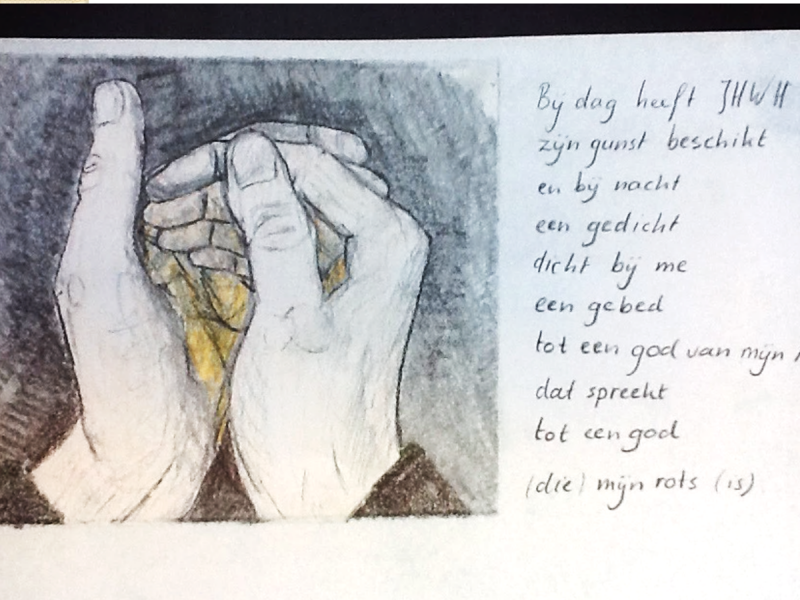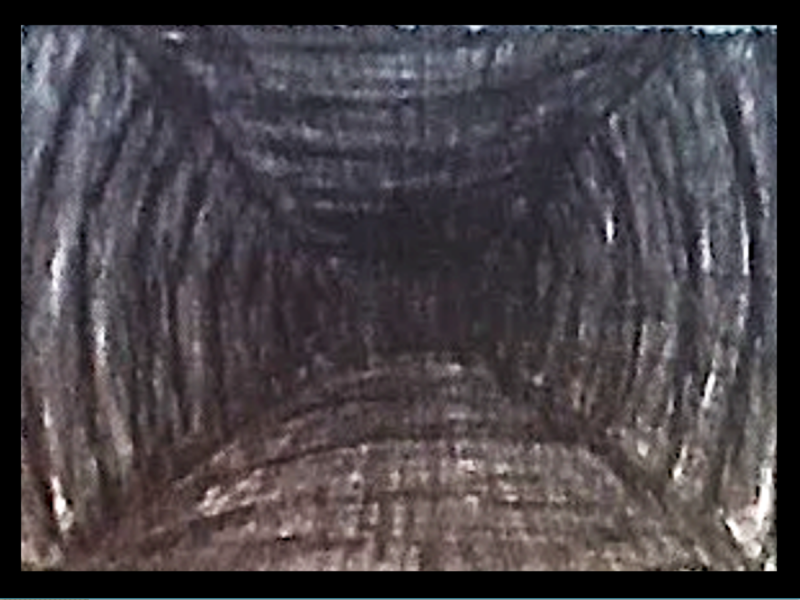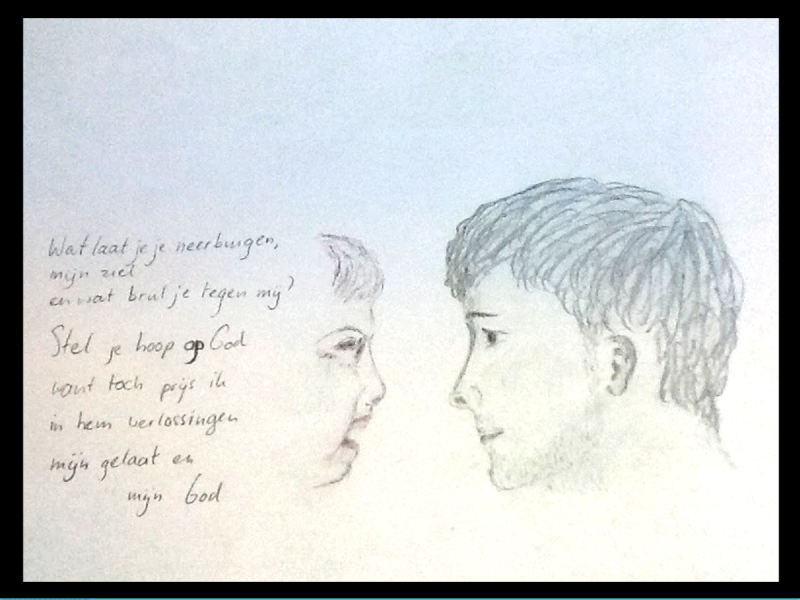6. The second night of the soul
Psalm 42:7-12

Over me, my soul is cast down,
that's why I remember you!
From the land of Jordan* and Hermon peaks,
from the mountains - making (me) so small -
depth after depth - (I am) crying out over the sound of your waterfalls.
All your waves and breakers have swept over me.
*) the Hebrew for Jordan can be translated as 'descender'

By day the LORD commands his steadfast love,
and at night his song is with me,
a prayer to a God of my life.
I want to speak to God, my rock.

“Why have you forgotten me?
Why have I walked in black
oppressed by the enemy?”

With a crushing of my bones,
my adversaries taunt me,
while they continually say these to me:
“Where is your God?”

What are you cast down, my soul
and what are you roaring against me?
Hope in God;
for yet I shall praise him,
my salvation and my God.
Reflections
The second cycle consists of five sections, two of which are repeated from the first cycle: the question "Where is your God" and the closing refrain of my soul that is roaring against me.
In the first section the remembering is no longer a matter of just comforting the soul, but now also an accusation of God. The overwhelming grief of the soul is a spiritual crisis; it is caused by God's waves and breakers. I propose a new translation that expresses this more forcefully and that I have depicted in the drawing: I feel made small and I feel like my voice is not strong enough to rise above the turmoil.
The second surprise is that in that turmoil there are unexpected moments of comfort from God's side. Not because I follow some kind of program of pastoral care, but because God grants me glimpses of his presence: a melody that comes to mind, or words to pray. Not only has the crisis of my soul deepened, but also the authenticity of such moments of grace. The "by day" and "by night" remind of God's guidance of Israel after the exodus. It gives me a sense of direction in the barren desert of my faith. A God of my life is in Hebrew almost identical to the living God my soul was thirsting for in the opening lines of the psalm. It is his engagement with me in my despair, that makes him come alive for me.
Yet as soon as I want to speak to the God who is that rock, I am confronted again with the reality of my situation. With the darkness of having enemies whom I cannot answer. The awareness of their presence reopens the wound of the existential question: "Where is your God."
Speechless, I return to observe the roaring of my soul. Yet somehow I feel stronger and more mature. Or perhaps my soul's roaring has become somewhat less overwhelming, as the crying of a child is less intimidating than the rage of an adolescent. Perhaps you have noted that in the final drawing here, I have made my soul (depicted in purple red) smaller than in the final refrein of the first cycle.
It was psalm 131 that provided me with this understanding of the pastoral approach of psalm 42/43. It is not about a pious form of cognitive behavioral therapy. It is about allowing your soul go through all her emotions, while loving her as a mother so that she can become child again. It is about accepting the bursts and cycles that accompany this process. And in that way it makes space for moments of grace, that can open up the potential for healing and for growth.
Add comment
Comments